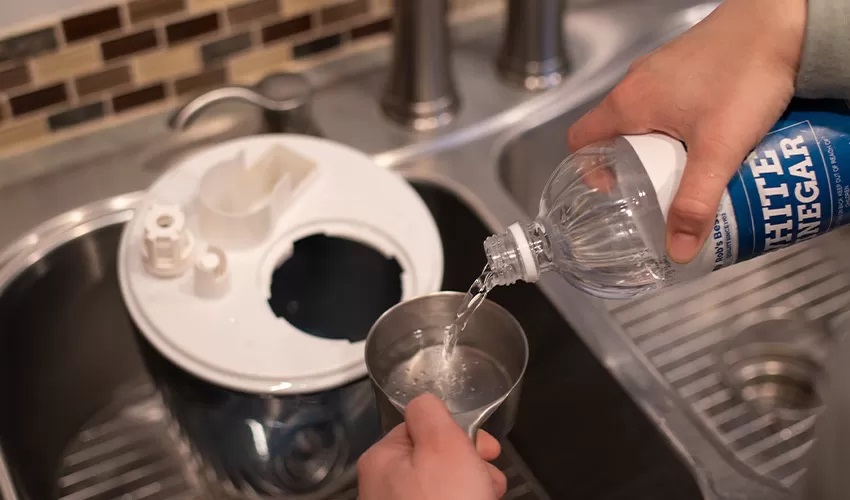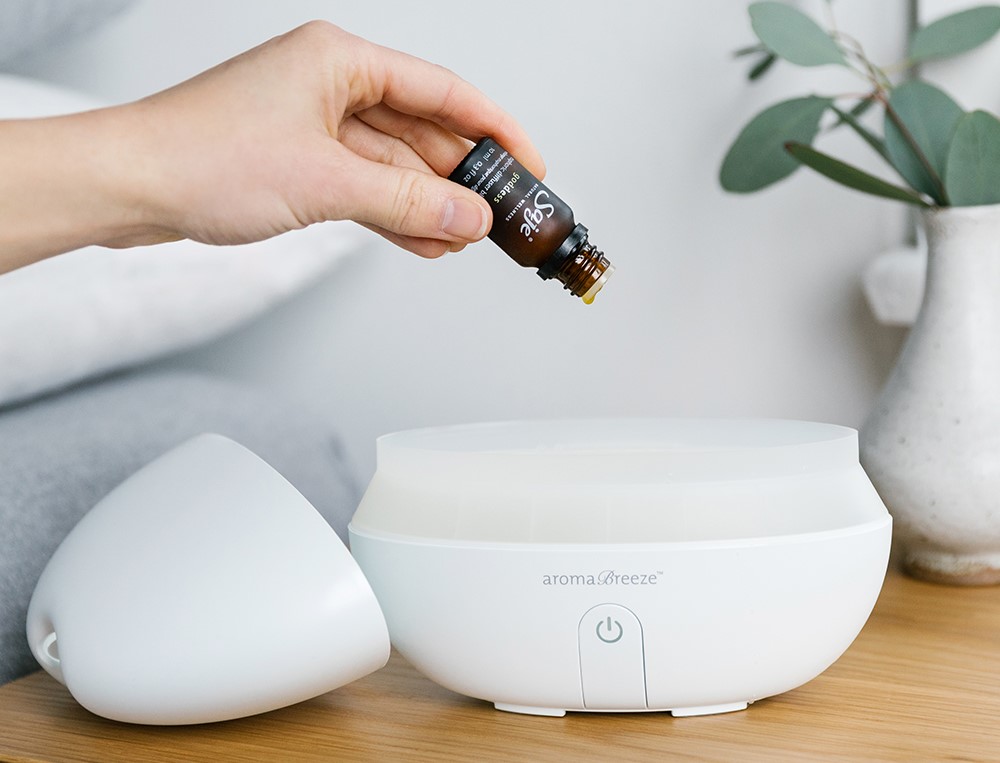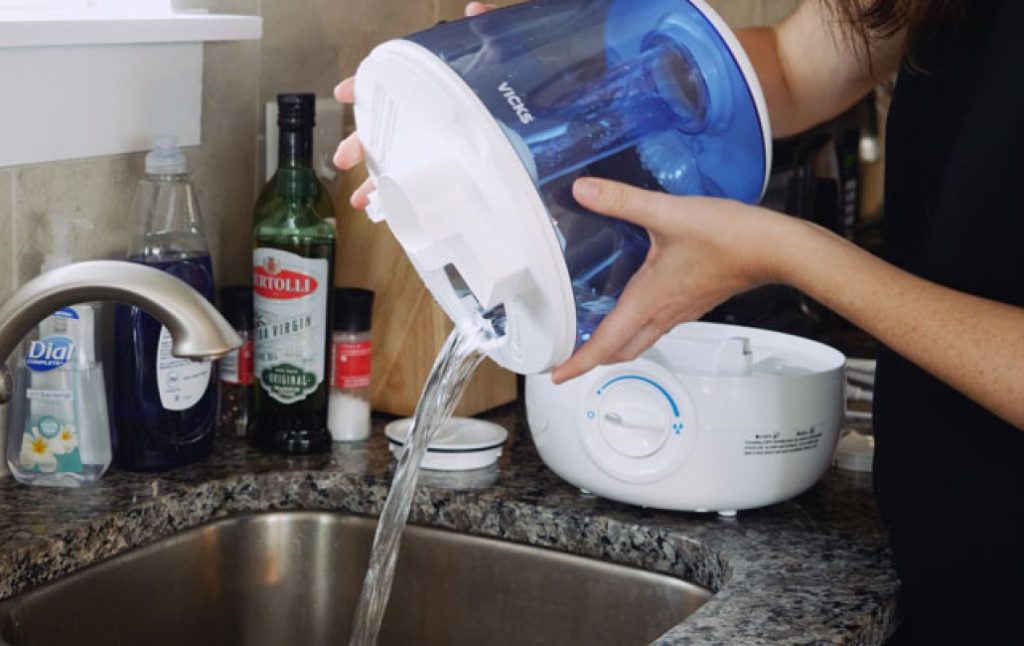

Whether you suffer from allergies or live in a really dry climate, the air in your home can quickly be affected in a negative way. Dry air can cause sensitivities in your nasal passage, create dry skin, and lead to an uncomfortable situation. The solution is to invest in an appliance that can help create a better environment in your home. If you’re unsure what will work better, humidifiers vs air purifiers, this guide will help. In it we’ll discuss the pros and cons of each and how they stack up compared to each other. Your home should be a comfortable, welcoming place. And that includes the air you breathe.
A humidifier works by increasing the amount of moisture in the air. Ideally, the humidity level in a home should be about 40 to 50%. If the level is less than this then it means the air is particularly dry.
You can determine the humidity level in your home by using a hygrometer. If you do use one, take multiple readings throughout the day to get a more accurate idea of the range of humidity in your home.
Inside a humidifier, there will be a tank of water. This water is usually heated to create steam which is then blown into a room. You can purchase a small humidifier that can rest on a table, for a bedroom, or purchase a larger humidifier that takes up space on the floor, to service a larger living room or apartment.
The water tank will need to be filled up constantly, usually daily, or else the machine won’t work. There will often be an indicator light to let you know if the tank is empty.
You will often see humidifiers at work in movies when a character becomes sick. This is also true in real life as the excess moisture will help unblock nasal passages, allowing you to breathe easier.
However, many people use a humidifier year-round, especially in their bedrooms at night, in order to create a more comfortable atmosphere.
Humidifiers create a soothing, comforting experience. Most people grow to love their humidifier and will use it nightly to help them sleep.
If you don’t plan on using your humidifier daily, there are still a great appliance to have for when you do need one. If you or a family member is sick, you can take your humidifier out of storage and use it as needed. The moist air will help you breathe easier when you are sick and in turn will help you get the rest you need so you can recover faster.
Having a small, portable humidifier in your home is ideal because you just never know when you might want to use it.
Humidifiers will only work if there is water in the tank. You will need to get into a routine which usually requires daily top-ups of the water tank. This definitely needs to be done daily if you plan on using your humidifier every night while you sleep.
However, because water is used, you also need to ensure your humidifier is properly cleaned. The water can quickly spill into the machine itself if proper care isn’t taken. Then, that water can cause mold to grow inside the humidifier. A dirty humidifier can actually release mold spores into your home which will result in very negative side effects.
Because humidifiers release extra moisture into the air, you want to make sure there is proper ventilation. Otherwise, that moisture can prove problematic as it may lead to mold growth or warped furniture. If you decide on a humidifier, purchase one that accurately measures the humidity in the room. You don’t want to create too much moisture which will in effect create another problem when all you want is a solution.
Simply put, an air purifier purifies air. As air circulates through the machine, any unwanted pollutants are removed and only fresh air is allowed to pass back into a room. These pollutants can include pet dander, mold spores, dust, and pollen.
Air purifiers have different capabilities and some are more effective than others. A superior air purifier will have multiple layers of filters, including a HEPA filter, that will consistently trap unwanted particles from your air. You will need to purchase the right size one for the room size you want to place it in.
Air purifiers are almost essential if you have allergies. Even if you keep your home spotless, there still so many microbes that float around in the air. An air purifier can help you breath easier as it removes allergens.
If you live in a city, then an air purifier can allow you to actually open a window. Instead of worrying about pollution and exhaust fumes entering your apartment, you can instead place an air purifier near an open window and know that only clean air is being circulated in your home.
With an air purifier, everything rests on the filters inside the machine. Therefore, products that seem inexpensive are unfortunately ineffective as well. To really get the most out of an air purifier, you need to spend more money; otherwise you just aren’t getting many of the benefits.
With these filters, you will need to replace them periodically. Depending on the filter, this could be every 6 to 12 months. Some filters can be cleaned instead of replaced but this requires extra work and the ability to remember to do so.
Both a humidifier and an air purifier can affect the air inside your home. However, they are quite different appliances. To really understand how they are different, let’s take a look at these specific categories.
Humidifiers and air purifiers are both practical devices although their application is quite different. Humidifiers are best if you have issues breathing or are particularly sensitive to dry air. If your skin is dry, itchy, and even scaly in the winter, then a humidifier can help. If you’re someone who hates being sick and is uncomfortable and unpleasant, even when it’s just a cold, then a humidifier can help you mend a bit faster.
Air purifiers are important to have if you have allergens or live in the city. They can filter out all the unwanted particles in the air and help you and your lungs breath better. Allergies to dust, pollen, or pet dander, can become less sever thanks to an air purifier. If you live in the city, you no longer have to dread opening the windows and being assaulted by the smog and pollution outside.
Both humidifiers and air purifiers have filters although they are quite different. Humidifiers usually have just one filter and it does the most basic job. It can screen for dust, pollen, and allergens, but it won’t completely clean your air. A lot of humidifiers are small and this means the in-house filter will be small as well, greatly impacting its effectiveness. You should change a humidifier filter every 3 months.
Air purifiers, however, have a whole filter system. Inside an air purifier you can find a carbon filter, an ionizer filter, a UV light, or a HEPA filter. Some more advanced air purifiers will have a combination of these filters.
Most filters in an air purifier should be replaced every 6 months. Check, though, as some are permanent filters that can be cleaned instead of being thrown out.
If you plan on purchasing an air purifier, always try to find a product that has a HEPA filter. It stands for high efficiency particulate absorbing. This type of filter is comprised of foam, cotton, and fiberglass which work together to really clean your air.
In fact a HEPA filter must go through rigorous testing and be assured that it can remove 99.97% of all particulates that are 0.3 micrometers in size.
Whether your humidifier or air purifier is portable is completely dependent on size. When it comes to humidifiers, there is a greater range of sizes. You can find small, very portable devices that can be easily transported from the storage closet to a bedroom. If you want a more efficient humidifier, however, it will be much bulkier and far less portable. In this case, you should expect your humidifier to live in one space in your home.
Air purifiers still come in different sizes but even their smallest size is larger than a humidifier. There are also larger ones, made for whole home use, that are not very portable.
If you want a medium to large-sized humidifier or air purifier, look for a model that has wheels on it. This will greatly make a difference in portability and won’t force you to break your back as you move it around.
Portability plays a greater importance if you plan on using either a humidifier or air purifier for only parts of the year. If this is the case, you should also think about where you will store it when not in use.
Air purifiers and humidifiers don’t need a lot of maintenance but they do need some attention to keep them lasting a long time. An air purifier will have a system of filters that all need to be either cleaned or replaced, and even most humidifiers will have a small filter that needs the same treatment.
Humidifiers need more maintenance because they have an attached water tank. This water tank needs to be kept constantly filled so that it will work. The water also has to be monitored so that it doesn’t create a breeding ground for bacteria.
In this category, humidifiers and air purifiers are actually quite similar. To begin with, there are many type and sizes of humidifiers and air purifiers. Usually, size is proportionate to capability. The larger the device, the larger room it can service.
You can find small humidifiers and small air purifiers that are small enough to fit on a dresser or shelf. These, however, will only work for small rooms such as bedrooms.
On the other end of the spectrum, you can find large humidifiers and air purifiers that will sit on the floor. In this case, they have enough capacity to service either whole apartments or open concept ground floors.
Before you purchase either device, think about how you want to use it. Buying a small humidifier or air purifier and expecting it to have the capability to filter air in an entire room will only lead to disappointment.
If you suffer from allergies, especially pet dander and pollen, then an air purifier is the best machine. As air moves through an air purifier, its advanced filter system will trap these irritants, leaving clean air for you to breath.
If you have sinus problems, then a humidifier is the better bet. Humidifiers release moisture into the air which creates a much more soothing experience as air flows down your nasal passage. Dry air can cause a lot of irritation so the more humidity there is in the air, the easier it will be to breathe.
Interestingly, when it comes to asthma, both a humidifier and an air purifier may be the solution. A humidifier will make the air easier to breathe and won’t irritate the bronchioles inside your lungs. In tangent, an air purifier can remove the substances in the air that can trigger an asthma attack. Pollen, dust, and allergens can wreak havoc on your lungs if you suffer from asthma. Removing them can help prevent unnecessary suffering.
Humidifiers and air purifiers are both devices to invest in but they offer vastly different experience. If you need relief from dry skin, headaches, and dry sinuses, then a humidifier can help. If you need relief from exposure to dust, pollen, smoke, and allergens, then an air purifier can help. When it comes to the battle of humidifiers vs air purifiers, the winner is completely dependent on your needs.





